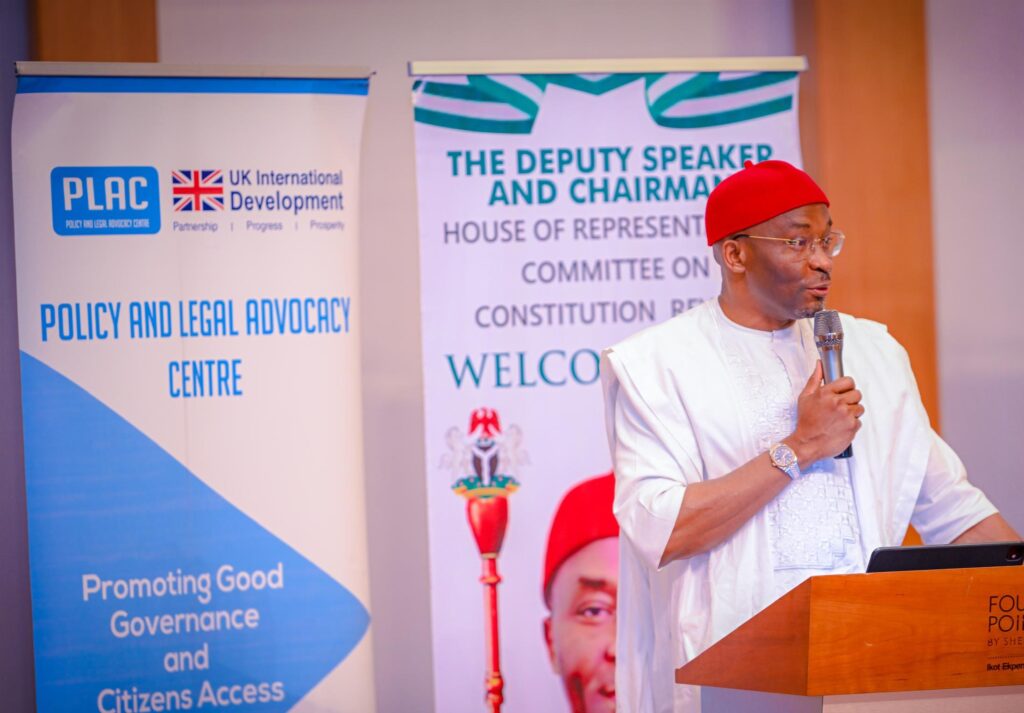By Gloria Ikibah
The Chairman of House of Representatives Committee on the Review of the 1999 Constitution, Rep. Benjamin Kalu, has stated that none of the 31 requests submitted for state creation met the constitutional requirements.
Kalu, who also serves as Deputy Speaker, made this known during a two-day retreat organised by the 10th House in collaboration with the Policy and Legal Advocacy Centre, supported by the UK Foreign Commonwealth and Development Office (FCDO), in Ikot Ekpene, Akwa Ibom State, on Friday.
The retreat which holds from February 20 – 23, 2025, provided a platform to assess pending amendment bills and plan the next steps in the constitutional review process.
While acknowledging the significance of state creation in Nigeria’s governance structure, Kalu noted that the submitted requests did not meet the legal criteria for consideration.
He said the committee has extended the deadline for submissions to March 5, 2025, to allow for further input and possible revisions and that further extensions might be considered, depending on the retreat’s outcome.
Kalu also disclosed that the committee was currently reviewing 151 constitutional amendment bills, reflecting lawmakers’ ongoing efforts to refine governance in Nigeria. While some bills have advanced to the second reading, others remain at the initial stage.
Deputy Speaker also identified duplication of bills as a key challenge in the ongoing amendment process, and noted that some bills covered similar issues under different sponsors, while others overlapped in subject matter. To streamline efforts and avoid redundancy, the committee categorized the bills into key thematic areas:
- Federal Structure and Power Devolution
- Local Government Autonomy
- Public Revenue, Fiscal Federation, and Revenue Allocation
- Nigerian Police and Security Architecture
- Comprehensive Judicial Reforms
- Electoral Reforms
- Gender Issues and Human Rights
- State Creation
According to Kalu, this classification will help lawmakers focus on amendments that align with national interest and legislative priorities.
RRecognising the link between constitutional amendments and electoral laws, the committee invited the leadership of the House and Senate Committees on Electoral Matters to the retreat.
Kalu stressed that any proposed changes to the Electoral Act requiring constitutional amendments must pass through his committee to ensure a smooth legislative process.
As part of the next phase, Zonal and National Public Hearings have been scheduled across the six geopolitical zones to allow Nigerians to contribute to the amendment process. These hearings will hold in:
- North Central: Nasarawa and Niger States
- North East: Borno and Gombe States
- North West: Kaduna and Sokoto States
- South East: Enugu and Imo States
- South South: Bayelsa and Cross River States
- South West: Lagos and Ondo States
Kalu therefore urged lawmakers to engage diligently, ensuring the final amendments reflect the will of Nigerians.
He reiterated the committee’s commitment to a transparent and inclusive process, expressing confidence that their work would strengthen Nigeria’s democracy and governance.
The Executive Director of the Policy and Legal Advocacy Centre (PLAC), Mr. Clement Nwankwo, commended the committee’s efforts and reaffirmed PLAC’s support for the review process.

